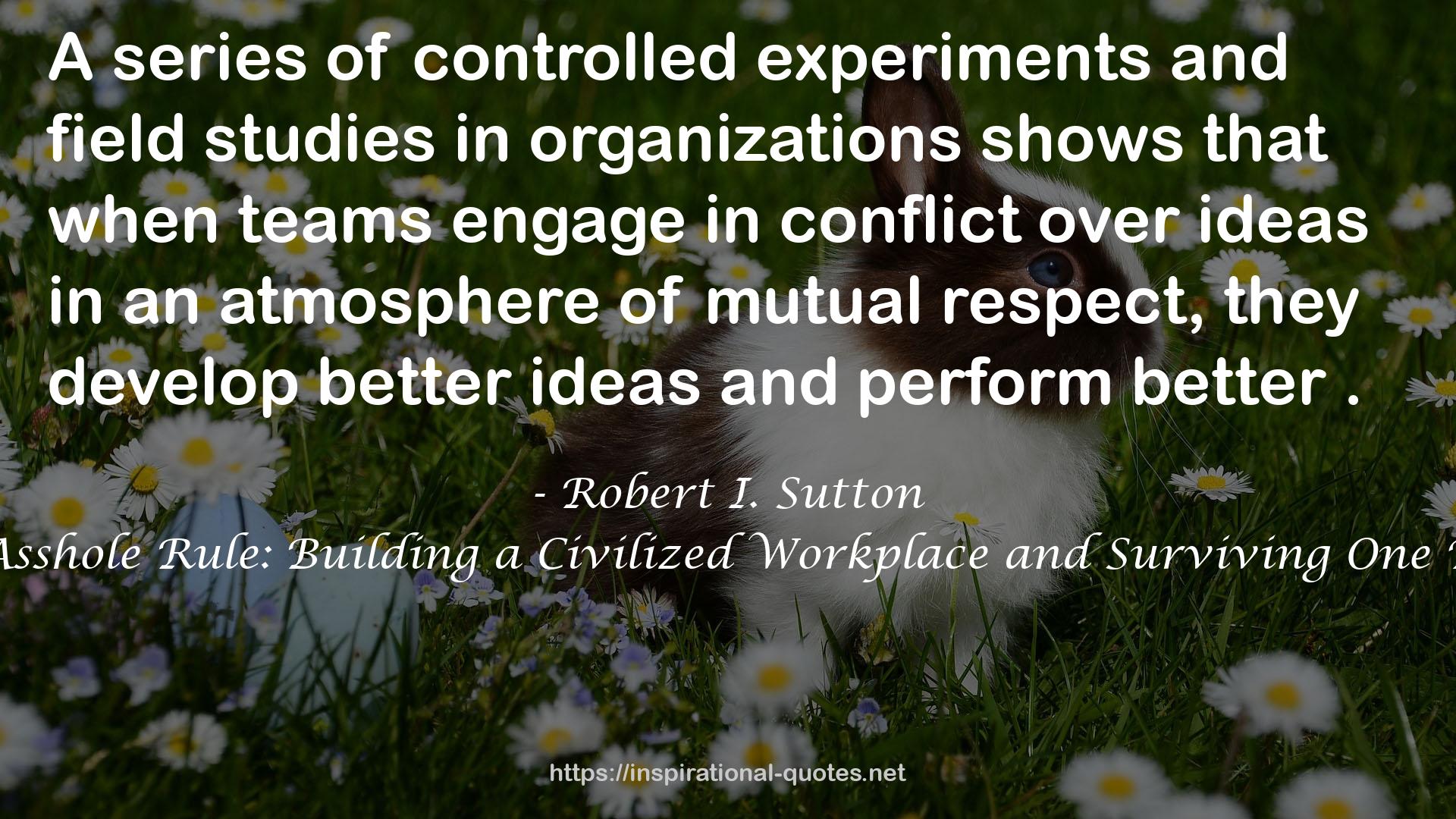12
" Bill Lazier’s advice means that you ought to do your homework before taking a job. Find out if you are about to enter a den of assholes, and if you are, don’t give in to the temptation to join them in the first place. Leonardo da Vinci said, “It is easier to resist at the beginning than at the end,” which is sound social psychology. The more time and effort that people put into anything—no matter how useless, dysfunctional, or downright stupid it might be—the harder it is for them to walk away, be it a bad investment, a destructive relationship, an exploitive job, or a workplace filled with browbeaters, bullies, and bastards. "
― Robert I. Sutton , The No Asshole Rule: Building a Civilized Workplace and Surviving One That Isn't
18
" Consider James D. Sinegal, co-founder and CEO of Costco, a warehouse retailer. His salary in 2003 was $350,000, which is just about ten times what is earned by his top hourly employees and roughly double that of a typical Costco store manager. Costco also pays 92.5% of employee health-care costs. Sinegal could take a lot more goodies for himself, but has refused a bonus in profitable years because “we didn’t meet the standards that we had set for ourselves,” and he has sold only a modest percentage of his stock over the years. Even Costco’s compensation committee acknowledges that he is underpaid. Sinegal believes that by taking care of his people and staying close to them, they will provide better customer service, Costco will be more profitable, and everyone (including shareholders like himself) will win. Sinegal takes other steps to reduce the “power distance” between himself and other employees. He visits hundreds of Costco stores a year, constantly mixing with the employees as they work and asking questions about how he can make things better for them and Costco customers. Despite continuing skepticism from analysts about wasting money on labor costs, Costco’s earnings, profits, and stock price continue to rise. Treating employees fairly also helps the bottom line in other ways, as Costco’s “shrinkage rate” (theft by employees and customers) is only two-tenths of 1%; other retail chains suffer ten to fifteen times the amount. Sinegal just sees all this as good business because, when you are a CEO, “everybody is watching you every minute anyway. If they think the message you’re sending is phony, they are going to say, ‘Who does he think he is? "
― Robert I. Sutton , The No Asshole Rule: Building a Civilized Workplace and Surviving One That Isn't

